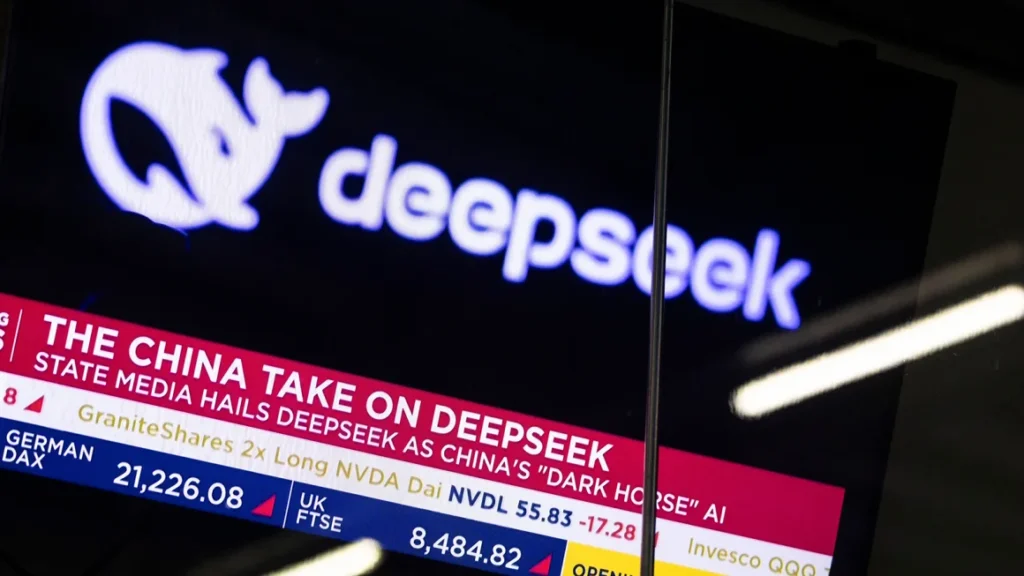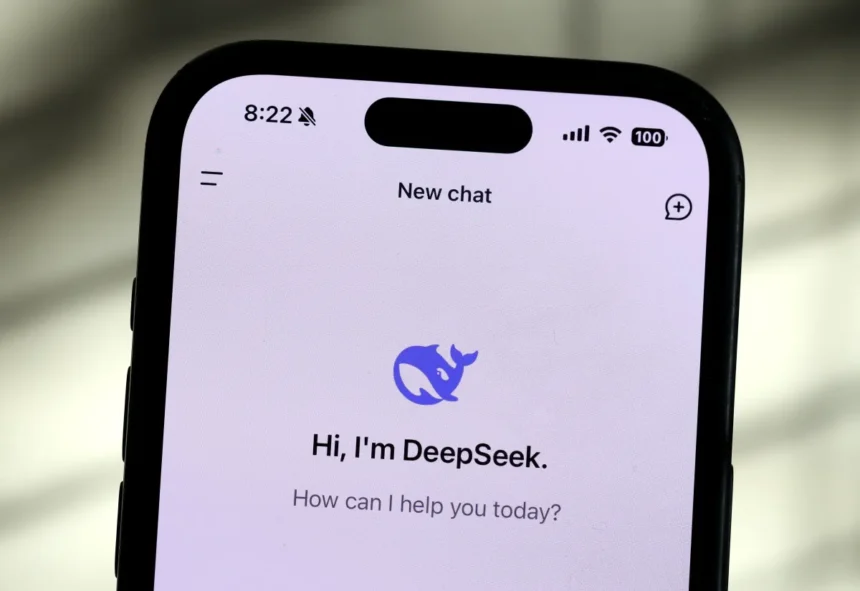Chinese AI company DeepSeek, already embroiled in accusations of intellectual property theft, privacy scrutiny in Europe, and a massive cyberattack, now finds itself entangled in yet another legal quagmire—a trademark dispute in the United States.
A Race Against Time: DeepSeek’s Trademark Woes
On Tuesday, DeepSeek officially submitted an application to the U.S. Patent and Trademark Office (USPTO) in an effort to secure the rights to its name for its AI chatbot applications, products, and tools. However, the company was just a fraction too late.
Thirty-six hours earlier, a Delaware-based entity, Delson Group Inc., had already beaten them to the punch, filing a trademark application for the term “DeepSeek.” The legal implications of this timing could pose significant challenges for the Chinese AI firm, threatening its ability to operate under its established brand name in the U.S. market.

Who is Delson Group?
Delson Group claims to have been selling AI-related products under the DeepSeek name since 2020—years before the Chinese company emerged. The company lists its business address as a residential home in Cupertino, California, and names Willie Lu as its CEO and founder.
Lu’s background is intriguing. According to his LinkedIn profile, he describes himself as a “semi-retired” consulting professor at Stanford and an advisor to the Federal Communications Commission (FCC). A graduate of Zhejiang University—coincidentally, the same alma mater as DeepSeek founder Liang Wenfeng—Lu has spent the bulk of his career in the wireless industry, rather than AI.
Beyond trademark filings, Lu appears to have leveraged the DeepSeek name for other ventures. He organizes an AI educational course called “DeepSeek Super-Intelligence” in Las Vegas, which charges $800 per ticket. The website associated with Delson Group’s filing promotes Lu as an expert with “about 30 years’ expertise in ICT [information and communications technology] and AI fields.”
A Pattern of Trademark Squatting?
Delson Group’s activities suggest a broader strategy of trademark squatting—a practice in which individuals or entities register trademarks with the intent to sell them later or capitalize on the brand recognition of others. A deeper dive into the USPTO’s Trademark Trial and Appeal Board Inquiry System reveals more than two dozen disputes involving Delson Group, including conflicts with high-profile companies such as Tencent, GSMA, and TracFone Wireless.
Further, a search of the USPTO’s Trademark Search tool uncovers 28 trademarks registered under Delson Group. Some of these trademarks appear to belong to well-established Chinese companies, including Geely, a major automotive firm, and China Mobile, the telecommunications giant.
This pattern strongly resembles past instances of trademark squatting. One of the most infamous cases involved Chinese businessman Zhan Baosheng, who successfully trademarked the English name “Tesla” in China—along with Tesla’s “T” logo, font, and its Chinese transliterated name. After legal battles, Tesla was eventually forced to settle with Zhan for an undisclosed sum.
What Are DeepSeek’s Legal Options?
Under U.S. trademark law, the first entity to use a trademark in commerce generally holds superior rights to the mark—unless the registration was made in bad faith. Given Delson Group’s earlier claim of using the name since 2020, DeepSeek may face an uphill legal battle.
Josh Gerben, an attorney specializing in intellectual property law and the founder of Gerben IP, notes that Delson Group holds several advantages.
“They filed first, they claim earlier use—2020 versus DeepSeek’s claimed 2023 start date—and they have an active website showcasing AI-related activities, including training events,” Gerben told TechCrunch.
DeepSeek could attempt to negotiate a coexistence agreement if it can prove that its AI products and services do not overlap with those of Delson Group. However, the challenge remains that Delson might pursue a claim of “reverse confusion”—arguing that DeepSeek’s rapid rise in AI has diluted its brand recognition in the U.S.
“DeepSeek may actually have a trademark problem in the United States where there could be this prior rights holder—Delson Group—and that prior rights holder may have a very good case for trademark infringement,” Gerben warned. If Delson chooses to litigate, DeepSeek could be forced to rebrand in the U.S. or reach a costly settlement to continue using its name.
AI Companies and Trademark Hurdles: A Growing Trend
DeepSeek’s predicament isn’t unique in the AI industry. OpenAI, the company behind ChatGPT, faced a trademark rejection last February when the USPTO ruled that “GPT” was too generic to be trademarked. OpenAI has also been locked in a legal battle with technologist Guy Ravine over the rights to the name “Open AI,” which Ravine claims to have conceived in 2015 as part of an open-source AI vision—coincidentally the same year OpenAI was founded.
As AI firms scale rapidly and their brand names gain widespread recognition, trademark disputes are becoming an increasingly common battleground. DeepSeek’s case could serve as yet another high-profile example of the challenges AI companies face in securing and defending their brand identities in competitive markets.
For DeepSeek, the road ahead is uncertain. Whether it fights the trademark dispute in court, negotiates a coexistence agreement, or ultimately rebrands, the company must now navigate a legal minefield that could shape its future in the U.S. market. One thing is clear: its troubles are far from over.










